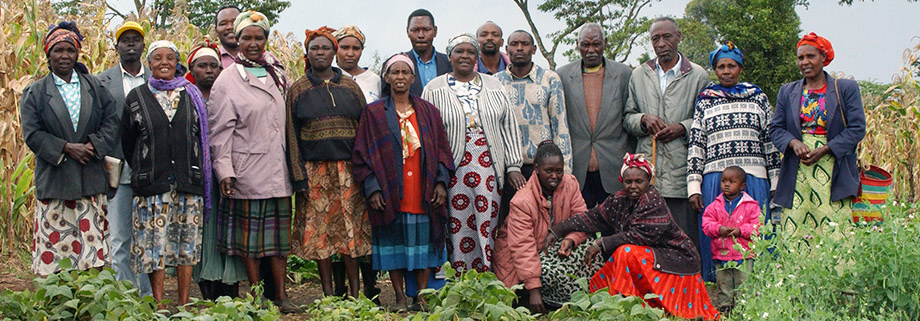
Agroforestry and Farmer Field Schools
Enhancing the capacities of family farmers, small-scale producers, and forest and farm producer organizations is crucial. Globally, over 4.35 billion hectares of forest and farmlands are owned or managed by smallholders, local communities, and Indigenous Peoples. These stakeholders play a vital role in food production, directly impacting ecosystems through their agricultural and forestry practices. To address the challenges in forestry, agriculture, and food production, it is essential to empower these groups. By doing so, family farmers and small-scale producers can become key players in local restoration efforts and rural transformation, ensuring food security and sustainable income generating opportunities for the growing global population.
The potential of farmer field schools in forestry
The global adoption of Farmer Field Schools (FFS) has shown great promise in advancing small-scale forestry and agroforestry. Through FFS:
- Family farmers and small-scale producers gain essential skills and knowledge, contributing to sustainable natural resource management and climate goals.
- Communities benefit from people-centered forest extension and community-based forestry, driven by enhanced education, capacity development and ecological literacy.
- Family farmers and small-scale producers develop "response-ability" to tackle agricultural challenges creatively and adaptively.
- Various strategies emerge to mitigate agriculture's environmental impacts while ensuring food security and nutrition and enhancing sustainable forestry production, contributing to ecosystem restoration, climate change adaptation and mitigation, and biodiversity conservation.
Why invest in farmer’s capacity development and education for agroforestry?
FFS globally empower family farmers to acquire the knowledge, skills, and social cohesion needed for regenerative natural resource management in small-scale and family farming. Across Africa, Asia and Latin America, they show a tremendous potential in advancing small-scale forestry and agroforestry production in an inclusive and sustainable way. FAO has identified 21 major FFS programmes in forestry, benefiting over 200 000 graduates in the Global South.
FFS agroforestry, and forestry-related initiatives identified during the FAO stocktaking study

How can FFS be used on forestry?
FFS on forestry can be used to implement and upscale the following themes:
- cross-cutting approaches such as territorial and environmental governance, and intergenerational and ethical approaches;
- sustainable production systems, in particular agroforestry systems, agroecology, community forest management, mixed sustainable orchards, and beekeeping;
- tree nursery production, grafting and seed management;
- forestry plantation and intermediate forest management, including pruning and thinning
- socio-ecosystem connectivity, landscape management, and ecosystem restoration;
- participatory land planning and social mapping;
- risk and management of climate change, including disaster, resilience, and climate change adaptation in diverse agroecosystems;
- crop harvest and post-harvest management activities; and
- transformation, label of origin, commercialization, and participatory guarantee systems.
So how to harness the potential of farmer field schools on forestry?
- Foster alliances and partnerships. Encourage global-to-local collaborations through joint programs, knowledge co-creation, and community practices.
- Invest in forest extension programs using people-centered approaches, transitioning from top-down advice to participatory platforms.
- Incorporate ecological knowledge into forest education, emphasizing ecosystem health and sustainable production.
- Prioritize polycultures integrating agriculture, trees, and forest insights for food security and climate resilience.
- Ensure the systematic inclusion of women in forestry learning and leadership roles. Leverage their expertise in plants, nutrition, and forest management for sustainable development.
- Advocate for policy and market incentives to diversify farmers' production and create markets for sustainable products.
- Integrate local businesses and income-generating activities into farmer field schools and community initiatives. Empower marginalized groups to combat rural-to-urban migration and promote inclusive development.
- Invest in successful local practices and innovators to strengthen leadership and organizational capacities.
- Establish frameworks for continued collaboration between scientists and farmers, incorporating traditional ecological knowledge into regenerative agriculture and forestry practices.
Resources

